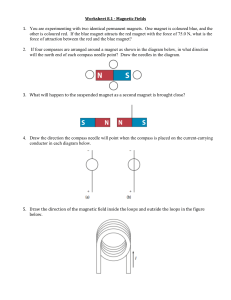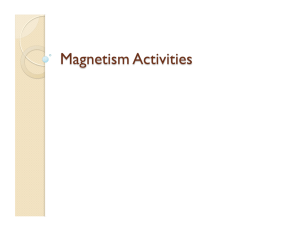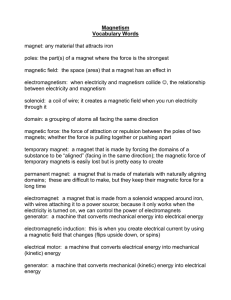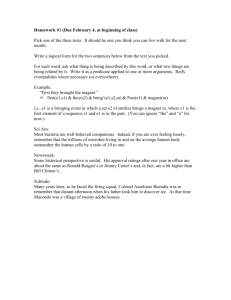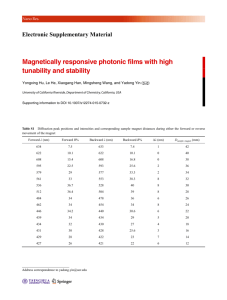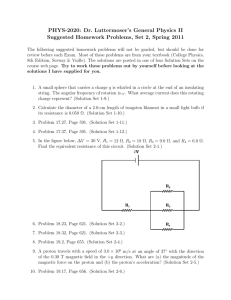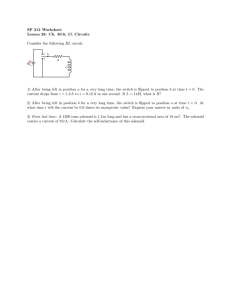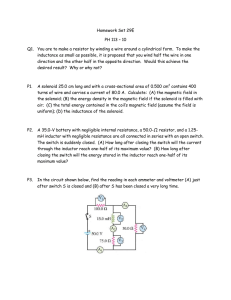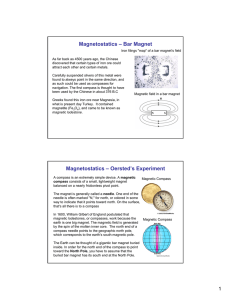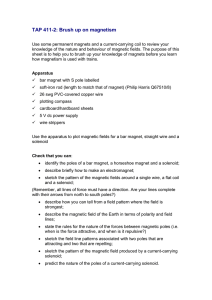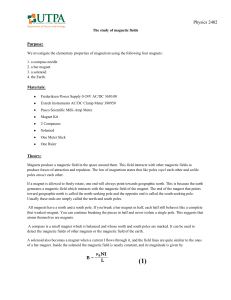Finding B Use a compass to
advertisement
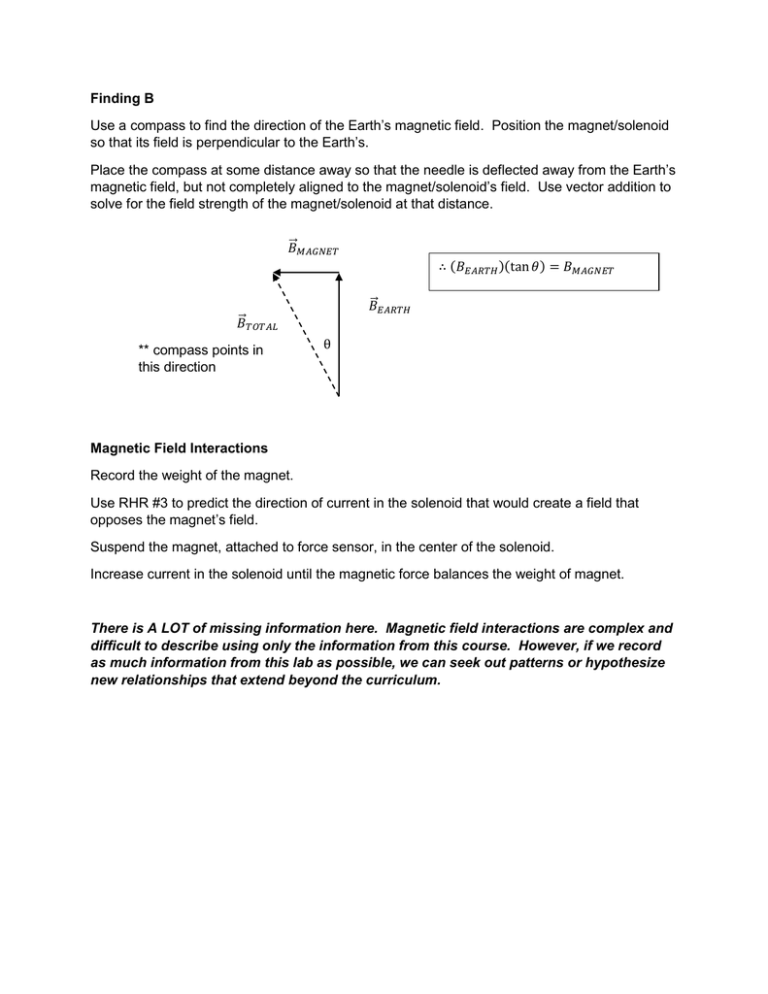
Finding B Use a compass to find the direction of the Earth’s magnetic field. Position the magnet/solenoid so that its field is perpendicular to the Earth’s. Place the compass at some distance away so that the needle is deflected away from the Earth’s magnetic field, but not completely aligned to the magnet/solenoid’s field. Use vector addition to solve for the field strength of the magnet/solenoid at that distance. 𝐵𝑀𝐴𝐺𝑁𝐸𝑇 ∴ 𝐵𝐸𝐴𝑅𝑇𝐻 tan 𝜃 = 𝐵𝑀𝐴𝐺𝑁𝐸𝑇 𝐵𝐸𝐴𝑅𝑇𝐻 𝐵𝑇𝑂𝑇𝐴𝐿 ** compass points in this direction θ Magnetic Field Interactions Record the weight of the magnet. Use RHR #3 to predict the direction of current in the solenoid that would create a field that opposes the magnet’s field. Suspend the magnet, attached to force sensor, in the center of the solenoid. Increase current in the solenoid until the magnetic force balances the weight of magnet. There is A LOT of missing information here. Magnetic field interactions are complex and difficult to describe using only the information from this course. However, if we record as much information from this lab as possible, we can seek out patterns or hypothesize new relationships that extend beyond the curriculum.

